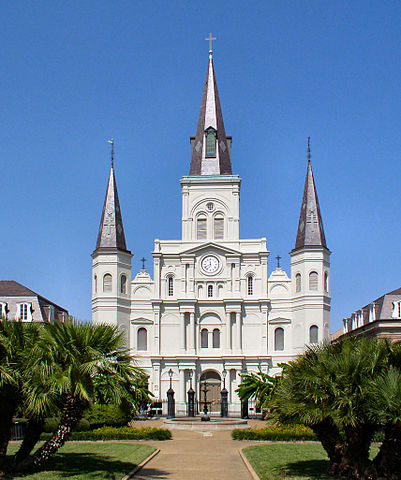Permoli v. New Orleans, 44 U.S. 589 (1845), is an unusual nineteenth-century case that shows the limits of the free exercise clause of the First Amendment in the years before the Fourteenth Amendment, through which the Court in time applied the vast majority of the provisions of the Bill of Rights to the states.
Priest said ordinance limiting Catholic funerals to single chapel violated First Amendment
At issue was a New Orleans law limiting Catholic funerals to a single chapel in the city. The ordinance, which was on its face a health measure designed to combat yellow fever, was apparently the result of a feud among Catholics as to whether the bishop, who controlled one church, or laypersons, who controlled others, would get control. The priest fined for violating the ordinance argued that it violated the clause in Article 4, section 2 of the U.S. Constitution guaranteeing a “republican” form of government to the states and the free exercise clause of the First Amendment.
Court dismissed case; said it was up to states to protect religious liberty
Justice John Catron wrote the Court’s unanimous decision dismissing the case. He reasoned that it is up to “state constitutions and laws” to protect citizens’ religious liberties in the states. Examining the argument that Louisiana had been admitted to the Union with the understanding that it must have a “republican” form of government (the guaranty clause) that upheld “the fundamental principles of civil and religious liberty,” Catron observed that Congress had already made this determination when it accepted Louisiana into the Union. Because laws that once governed the territory no longer applied, the Court dismissed the case for lack of jurisdiction.
Permoli is consistent with the Court’s decision in Barron v. Baltimore (1833) declaring that the Bill of Rights did not apply to the states. Cantwell v. Connecticut (1940) later declared that the due process clause of the Fourteenth Amendment applied the free exercise clause to the states.

